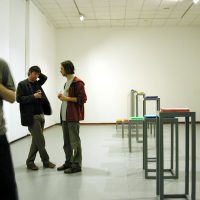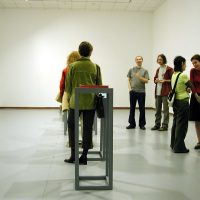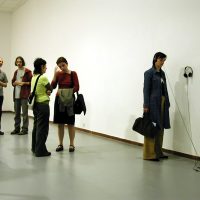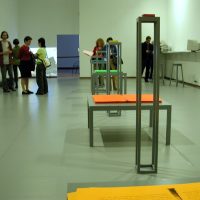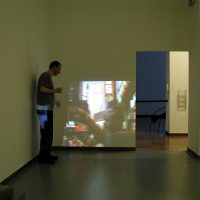Szacsva y Pál has opted for the latter solution when he based his work on Empire, a book by Antonio Negri and Michael Hardt (Harvard University Press, 2000) and the intellectual debate centred on it. The curators of the 11th Dokumenta in Kassel, the 50th Venice Biennial and other major exhibitions of contemporary art have most often chosen Empire from among recent relevant literature as a point of reference, or regarded it as an theoretical foundation for their exhibition concepts. Okwui Enwezor has suggested that the artworks presented at the Dokumenta were also placed in the context of the post-capitalist and post-colonialist globalisation which this book analyses so magnificently. Hans-Ulrich Obrist considers the book to be one of the most outstanding interpretations ever written on globalisation.
In addition to the intense attention it received from the visual art field, Empire has caused a great stir in the world of political philosophy. Besides positive responses, social scientists have also voiced their critical views in various analyses. They deem both the major virtue and the major fault of the book to be one and the same feature: its daring departure from reality, its poetic and imaginary potential. Owing to the book’s interdisciplinary character and the comprehensive sphere of the issues tackled, and despite all its disputable qualities, Empire has an indisputable virtue in that the debate it has given rise to takes place in a particularly broad spectrum, with hardly any social, economic or cultural problem of significance today being left untouched.
The Empire installation is the exhibition’s central element. In the exhibition room one can also research and copy nearly two hundred studies, essays and reviews on Empire, as well as other writings referring to Negri and Hardt’s book, which have been included in art publications and have been made available on the internet.
